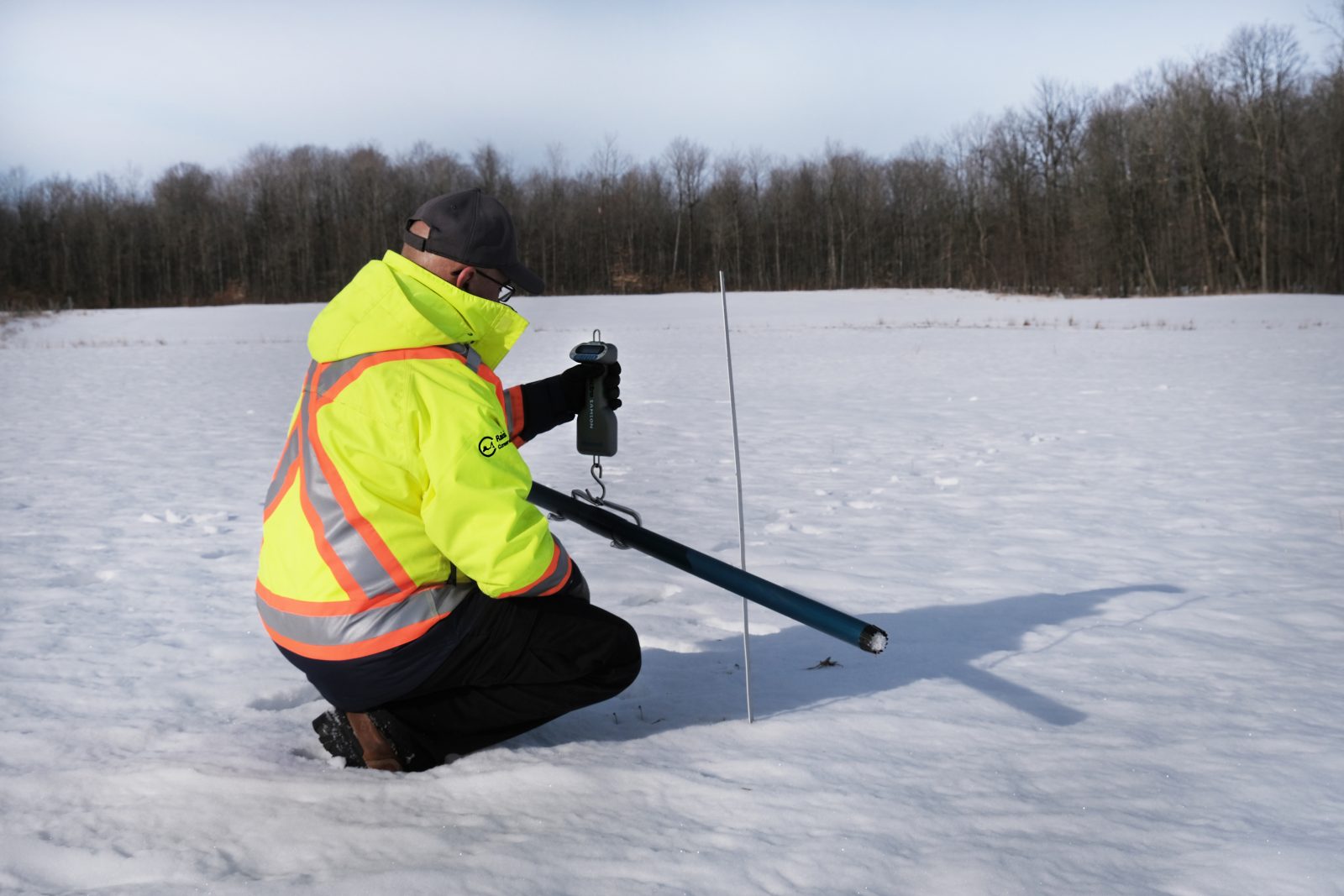As recent flurries herald the return of snowplows, shovels, and road-salt sprinkling, Raisin Region Conservation Authority (RRCA) staff are back to monitoring snow-water equivalent at select spots in its watershed jurisdiction in Cornwall and the surrounding area of SDG.
“Twice a month, during the winter season, we measure snow depth and density at sampling stations in Newington and Apple Hill,” says Pete Sabourin, RRCA’s Field Operations Team Lead. “This allows us to calculate how much water is contained within the snow at the sampling sites.”
Comparing current snow-water equivalent at the snow sampling sites against the normal historical average is one of the methods used by the RRCA to monitor local water levels as part of its Flood Forecasting and Warning (FFW) program.
The Conservation Authority also monitors weather forecasts throughout the year along with a network of local stream gauges and maintains a four-tiered flood status indicator for the region. The RRCA notifies its partner municipalities whenever there is a heightened risk of flooding or unsafe water conditions are expected.
Residents curious to compare this season’s snowfall with the normal historical average can see a graph updated bi-monthly on the RRCA website at rrca.on.ca as well as on its social media channels. The region’s current flood status indicator and previous FFW notices are also available.
“The RRCA has been conducting snow surveys at its sampling stations since 1978, providing staff with years of data to compare against this year’s measurements,” says Sabourin.
The RRCA also encourages the public to follow environmental best practices when using road salt this season to minimize impacts on drinking water sources. Preventing excess salting by using one tablespoon of salt per square meter surface, shoveling early to help the sun melt remaining snow and ice, redirecting downspouts to prevent ice from forming, and ensuring road salt supplies are stored properly can all help protect surface and groundwater drinking sources.
For more information, please visit rrca.on.ca or contact (613) 938-3611 or info@rrca.on.ca



